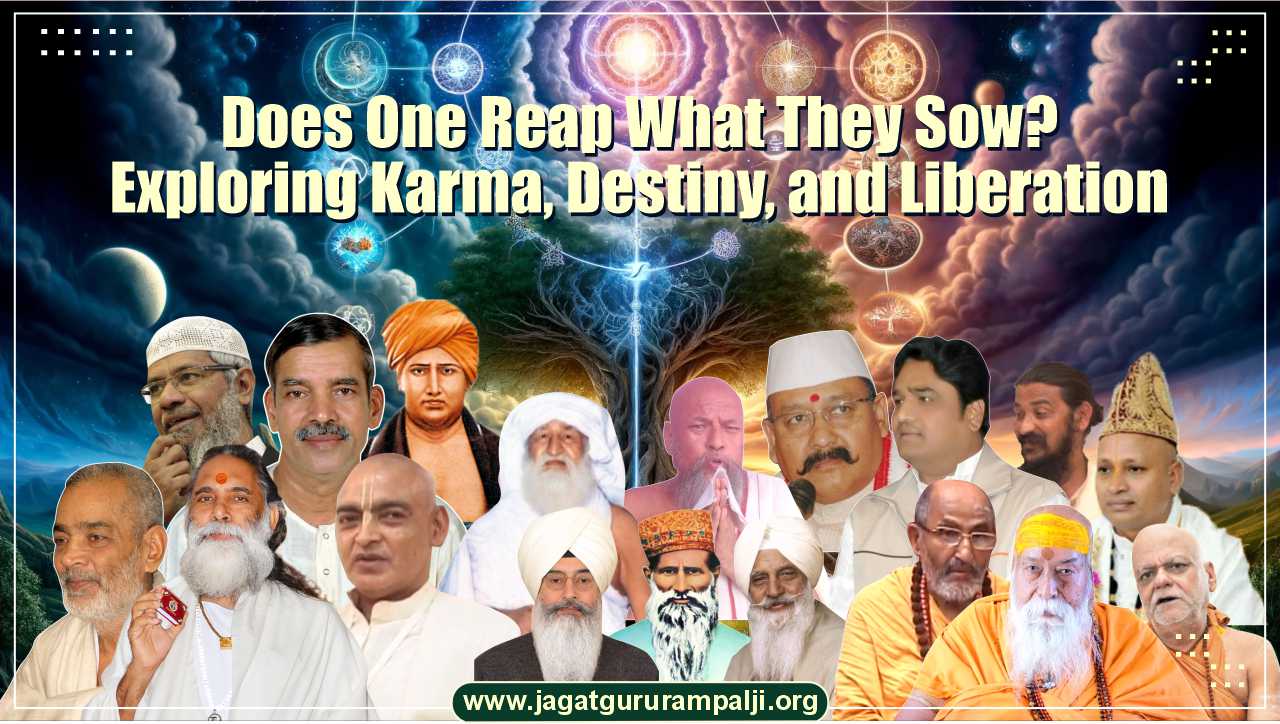
The question of consequences for our actions has lingered for millennia. Does every deed carry a weight, a karmic echo that ripples across lifetimes? Is there a path to escape this cycle, or are we destined to bear the brunt of past choices? The concepts of karma, destiny, and the path to liberation offered by devotion to the Supreme Lord are covered in the video.
The concept of karma, the law of cause and effect applied to our actions and their consequences, forms the bedrock of many philosophies. According to the text, karma can be categorised as "Prarabdh Karma" - consequences inherited from past lives - and the karma we create through our current choices, shaping our future. However, the notion of a predetermined destiny, as exemplified by the story of Lord Krishna and Gandhari's curse, presents a seeming contradiction.
It's important to understand that destiny can be changed by following worship in accordance with the spiritual texts. But the devotees rarely follow holy scriptures and keep flowing in popular traditions set by fake gurus.
Vedas and the Bhagavad Gita offer profound wisdom on various aspects of life, including the path to liberation. These scriptures advocate devotion to the Supreme Lord as a means to transcend karma. It's valuable to note that interpretations of these texts are explained by many fake gurus also but only Sant Rampal Ji Maharaj has explained them correctly.
The video emphasises the teachings of Sant Rampal Ji Maharaj, who posits that true devotion to Supreme Being offers the key to liberation from the cycle of karma. This can be proved from the Rigved Mandal 10 Sukta 163 Mantra 1-
Akshibhyan to Nasikabhyan Karnabhyan Chubukadhadhi. Yakshman Shirshanya mastishk Jihvaya Vrihami Te ॥1॥
“God can protect our nose, ear, mouth, tongue, head, and brain by removing all the troubles that destroy us due to sinful deeds and cutting off the toxic diseases.”
The video suggests that true knowledge and unwavering devotion as explained by the only enlightened sant of the day Satguru Rampal Ji Maharaj can lead to liberation from karma and ultimately, moksha (spiritual liberation)
From the context of "reap what you sow." The concept of karma, as outlined in the scripture supports this idea. Actions performed (sowing) have consequences (reaping), and this cycle of cause and effect governs the consequences inherited from past actions as well as those shaped by current choices.
People reap what they sow because of the law of karma. This principle holds that every action has a consequence, which can be either positive or negative based on the nature of the action. This is reflective of the idea that the karma created through our actions dictates our future, as well as is influenced by our past (Prarabdh Karma).
The article mentions the philosophical bedrock of karma, which includes the concept of reaping what you sow as part of spiritual rules.
The two types of karma mentioned are "Prarabdh Karma," which are the consequences inherited from past lives, and the karma we create through our current choices, which shapes our future.
Destiny can be changed by following the worship and practices prescribed in spiritual texts. However, it is crucial to be wary of popular traditions set by fake gurus and focus on authentic scriptural interpretations.
The Vedas and the Bhagavad Gita advocate devotion to the Supreme Lord as a means to transcend the cycle of karma, thereby leading to liberation.
The mantra from Rigved Mandal 10 Sukta 163 Mantra 1 states: "God can protect our nose, ear, mouth, tongue, head, and brain by removing all the troubles that destroy us due to sinful deeds and cutting off the toxic diseases." This mantra underscores the belief that divine protection from the consequences of sins and ailments is possible through sincere devotion, which is an essential step towards achieving liberation from the karmic cycle.
If you have any query regarding the above content then please email us at [email protected], we will try to solve it with proof.
Jaya Thakur
Indeed, the principle that we must face the consequences of our actions is a harsh reality, especially when our past actions have led to pain. Many turn to spiritual leaders and deities for relief, but it seems that the repercussions of our karma are inevitable and cannot simply be wiped away.
Satlok Ashram
Dear reader, thank you for sharing your thoughts with us. It’s a universal truth that actions have consequences, whether under the influence of Kaal/Brahm or lesser deities. People endure both the positive and negative outcomes of their past deeds, yet they cling to the hope that a higher power can alleviate their suffering. Above all, there exists a supreme God, the creator of the universe, who has the ability to absolve sins and bring peace and joy, as described in our sacred texts. This divine transformation can occur if a devotee engages in the correct form of worship, guided by a true saint. We encourage you to explore this deeper spiritual knowledge by reading "Gyan Ganga" and listening to the discourses of Saint Rampal Ji Maharaj, available across various social media platforms.